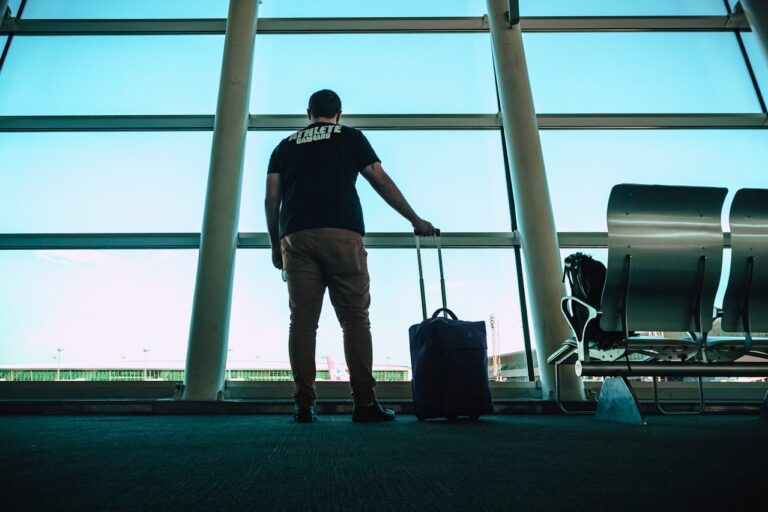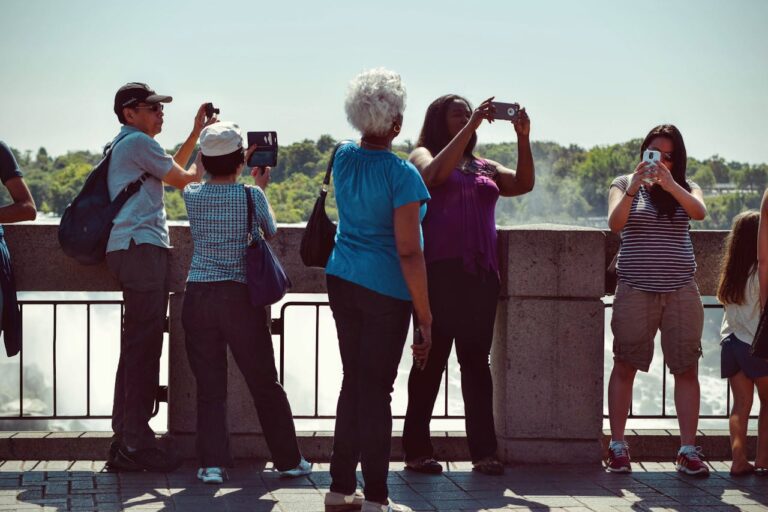Write Us: hello@ali5.org
How to Avoid Common Travel Scams When Abroad
Worried about travel scams while abroad? Learn how to spot and avoid common traps with these simple, practical tips, so you can stay safe and enjoy your trip stress-free.

Let’s be real travel is one of life’s greatest joys. Seeing new places, meeting new people, tasting food you can’t even pronounce it’s the stuff that makes life feel richer.
But we all know that not every part of the journey is smooth sailing. Somewhere between the jet lag and the street food, you might encounter someone who’s more interested in your wallet than your friendship.
It’s not fun to talk about, but it’s important. Scams happen. They happen to first-time travelers and seasoned backpackers alike. The good news? Most of them are easy to avoid once you know what to look for.
So, let’s walk through the most common travel scams and how you can sidestep them with confidence, without feeling like you have to keep your guard up 24/7.
1. The Super-Friendly Local Who Wants to “Show You Around”
It starts off harmless. Someone approaches you with a huge smile and perfect English. They say they love your country or ask if you need help finding something. Next thing you know, they’re offering to take you to a “local” place that just happens to be way overpriced or they get you into a spot where their buddy can overcharge you, too.
What to do:
Just trust your gut. Be polite, smile back, and say you’re good. A quick “Thanks, I’m okay!” goes a long way. Not every friendly stranger is up to no good—but if someone insists a little too much, that’s usually your sign to walk away.
2. The “Broken Meter” Taxi Trick
You hop in a cab, and the driver tells you the meter is broken. No big deal, right? Until you realize the ride that should’ve cost $10 is now mysteriously $45.
How to avoid it:
Before you get in, ask if the meter works. If it doesn’t, agree on a price upfront—or just wait for another cab. If ride apps like Uber or Bolt are available where you are, they can be a great way to avoid surprises altogether.
Also, if your gut says the route’s taking way too long, you’re probably right. A little pre-trip research on average taxi fares can save you from overpaying.
3. The “You Dropped Something” Distraction
You’re walking around, and someone taps you on the shoulder—“Hey, you dropped this!” Or, more weirdly, “There’s something on your back.” While you’re distracted, their friend makes off with your bag, phone, or wallet.
How to handle it:
Keep walking. Don’t stop to inspect anything until you’re in a safe spot. And keep your valuables close—ideally in a zipped bag you wear across your body or in a secure inside pocket.
4. The Fake Tickets or Tours Trap
You’re near a popular attraction, and someone offers you a great deal on a tour or ticket—right there on the street. It’s fast, convenient, and cheaper than the booth. But when you get to the gate, the ticket doesn’t scan. Oof.
How to protect yourself:
Buy your tickets from official websites, ticket counters, or trusted apps. If a deal seems too good to be true? It probably is. A little patience can save you from a big headache.
5. Sketchy ATMs and “Helpful” Strangers
It’s late, you need cash, and someone nearby offers to help. Or maybe they hover a little too close while you’re withdrawing. That “help” might come with a side of identity theft—or worse.
Stay safe by:
Using ATMs inside banks, hotels, or busy malls. And if anyone offers to “help,” just say no firmly and step away. Always cover your hand while entering your PIN and keep an eye on your surroundings.
6. The Fake Official
Someone dressed like a police officer or customs agent stops you and asks for your passport or wallet to “check for problems.” Sounds serious—but sometimes, it’s just someone in a fake uniform hoping you’ll hand over your stuff.
What to do:
Always ask for ID. Real officers won’t mind. If you’re not sure, say you’d prefer to go to a police station with them. If they’re fake, they’ll usually back off quickly.
7. The “Your Hotel Is Closed” Scam
You arrive in a new city, and a friendly driver or stranger tells you your hotel is overbooked, shut down, or in a dangerous area—but not to worry, they know a “better one.” Spoiler alert: the new hotel is overpriced and not great, and they’re getting a kickback.
Tip:
Call your hotel directly if anyone says it’s closed. Most places are happy to confirm your booking and help you find your way. Stick to your original plan unless you’ve verified it’s not legit.
8. The Street Performer Pickpocket Combo
You’re enjoying a lively show in a public square. Music, dancing, maybe even a little fire juggling. But while you’re distracted, someone is quietly slipping your phone from your pocket.
How to enjoy safely:
Keep your bag zipped, wear it in front of you, and don’t get too absorbed. Street shows are amazing, but pickpockets know where the crowds gather.
9. The Pushy “Guide” or Seller
Sometimes, someone starts showing you around without asking—or puts a bracelet or souvenir in your hand and insists it’s free. But when you try to walk away, they demand payment.
The fix:
Don’t accept anything you didn’t ask for. If someone pushes something toward you, just smile, say “No, thank you,” and keep walking. You don’t owe anyone money just because they handed you something.
So… Should You Be Worried?
Not at all.
Most people you meet while traveling are kind, generous, and honest. But like anywhere else in the world, there are a few who take advantage of tourists.
The trick isn’t to be fearful. It’s to stay aware, travel smart, and trust your instincts.
Here’s a quick recap to keep in your back pocket:
-
If something feels “off,” it probably is.
-
Be firm but polite—confidence goes a long way.
-
Keep your valuables close and your plans clear.
-
Don’t let scams ruin your trust in people. Just be prepared.
One last thing…
Travel is about more than places. It’s about people, surprises, and stories. With a little caution and a lot of openness, you’ll have experiences that stick with you for life—for all the right reasons.
Safe travels, and enjoy every moment out there. 🌍✈️







